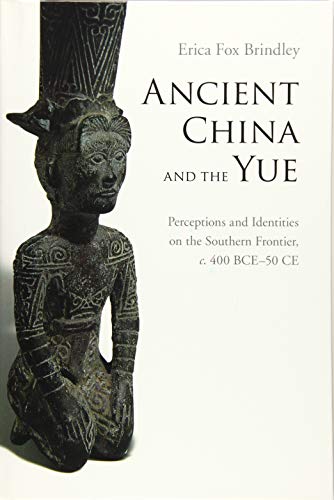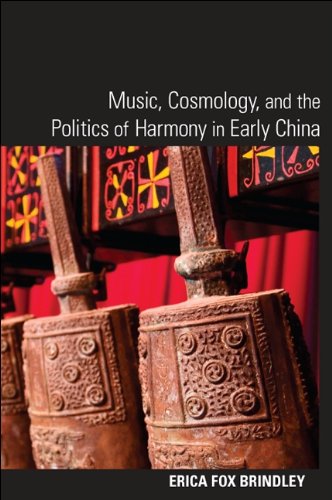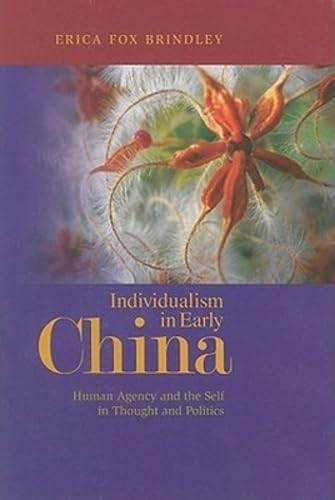Books by Erica Brindley
Ancient China and the Yue: Perceptions and Identities on the Southern Frontier, c.400 BCE-50 CE
Author(s): Erica Fox Brindley
Publication date: 2015-09-03
ISBN: 1107084784, ISBN-13: 9781107084780
Music, Cosmology, and the Politics of Harmony in Early China (SUNY series in Chinese Philosophy and Culture)
Author(s): Erica Fox Brindley
Publication date: 2013-07-02
ISBN: 1438443145, ISBN-13: 9781438443140
In early China, conceptions of music became important culturally and politically. This fascinating book examines a wide range of texts and discourse on music during this period (ca. 500–100 BCE) in light of the rise of religious, protoscientific beliefs on the intrinsic harmony of the cosmos. By tracking how music began to take on cosmic and religious significance, Erica Fox Brindley shows how music was used as a tool for such enterprises as state unification and cultural imperialism. She also outlines how musical discourse accompanied the growth of an explicit psychology of the emotions, served as a fundamental medium for spiritual attunement with the cosmos, and was thought to have utility and potency in medicine. While discussions of music in state ritual or as an aesthetic and cultural practice abound, this book is unique in linking music to religious belief and demonstrating its convergences with key religious, political, and intellectual transformations in early China.
“This is an enormous contribution to the field in terms of addressing some early conceptions of music and its social, cultural, and political role in the developing political and cosmic system based on correlative thinking, or as the author puts it, a ‘cosmology of mystical resonance.’” — Joanne D. Birdwhistell, author of Mencius and Masculinities: Dynamics of Power, Morality, and Maternal Thinking
Individualism in Early China: Human Agency and the Self in Thought and Politics
Author(s): Erica Fox Brindley
Publication date: 2010-06-30
ISBN: 0824833864, ISBN-13: 9780824833862
Conventional wisdom has it that the concept of individualism was absent in early China. In this uncommon study of the self and human agency in ancient China, Erica Fox Brindley provides an important corrective to this view and persuasively argues that an idea of individualism can be applied to the study of early Chinese thought and politics with intriguing results. She introduces the development of ideological and religious beliefs that link universal, cosmic authority to the individual in ways that may be referred to as individualistic and illustrates how these evolved alongside and potentially helped contribute to larger sociopolitical changes of the time, such as the centralization of political authority and the growth in the social mobility of the educated elite class.
Starting with the writings of the early Mohists (fourth century BCE), Brindley analyzes many of the major works through the early second century BCE by Laozi, Mencius, Zhuangzi, Xunzi, and Han Feizi, as well as anonymous authors of both received and excavated texts. Changing notions of human agency affected prevailing attitudes toward the self as individual―in particular, the onset of ideals that stressed the power and authority of the individual, either as a conformist agent in relation to a larger whole or as an individualistic agent endowed with inalienable cosmic powers and authorities. She goes on to show how distinctly internal (individualistic), external (institutionalized), or mixed (syncretic) approaches to self-cultivation and state control emerged in response to such ideals. In her exploration of the nature of early Chinese individualism and the various theories for and against it, she reveals the ways in which authors innovatively adapted new theories on individual power to the needs of the burgeoning imperial state.
With clarity and force, Individualism in Early China illuminates the importance of the individual in Chinese culture. By focusing on what is unique about early Chinese thinking on this topic, it gives readers a means of understanding particular "Chinese" discussions of and respect for the self.
Penn State University : History
- Jessamyn Abel
- Eliyana Adler
- David Atwill
- Kathleen Baldanza
- Dan Beaver
- William Blair
- Jennifer Boittin
- Erica Brindley
- Tobias Brinkmann
- Jonathan Brockopp
- Gary Cross
- Sophie De Schaepdrijver
- Greg Eghigian
- Garrett Fagan
- Lori Ginzberg
- Amy Greenberg
- Jens-Uwe Guettel
- Ronnie Hsia
- Benjamin Hudson
- Anthony Kaye
- Michael Kulikowski
- Prakash Kumar
- Daniel Letwin
- Russell Lohse
- Bryan McDonald
- Kate Merkel-Hess
- Mark Munn
- On-Cho Ng
- Maia Ramnath
- Carol Reardon
- Matthew Restall
- A. Gregg Roeber
- Anne Rose
- Nina Safran
- Kathryn Salzer
- Crystal Sanders
- Tatiana Seijas
- Gregory Smits
- Catherine Wanner
- Nan Elizabeth Woodruff
- Ran Zwigenberg
Most popular books
Link to this page using the following URL: https://www.facultybookshelf.org/author/erica_brindley


